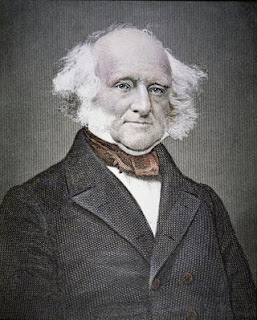We had a presidential inauguration this week and that had me thinking about the Presidents of the United States and the role they played in igniting my life-long love affair with history. It began with the Presidents back many years ago when I was in Kindergarten (yes, there is a story, but I will not relate it here). My nerd credentials were established early on. Since that time I have read many books dealing with individual presidents, presidential campaigns, and the like. Perusing my bookshelves, I see quite a few presidential titles. If you have read this far and feel at all curious as to what I have read (and might be looking for some recommendations), I can provide a list, along with some commentary. Changes in my political perspective have caused me to re-evaluate a number of the presidents. Some of the books I found to be more inciteful than others. I am splitting up the list into multiple posts in order to not make things interminable for my readers. Books pertaining to specific elections get included where appropriate. And, having several books with short biographies of the Presidents, I do have other biographical sources to draw on, which, in some instances, are the only ones that I have. So, here goes:
GEORGE WASHINGTON
Yes, he was a slave-owning member of the Virginia aristocracy. But, in terms of his approach to political leadership, he was sort of the anti-Trump.
George Washington: Soldier and Man by North Callahan
Mom got me this one for Christmas one year when I was in high school. It was appropriate for me at the time. Nothing challenging.
Washington: The Indespensable Man by James Thomas Flexner
A popular biography. Interesting and it humanizes the icon a bit.
General Washington's Christmas Farewell: A Mount Vernon Homecoming, 1783 by Stanley Weintraub
A big part of what made Washington a celebrated figure in his time was his willingness to step away from power following the success of the American Revolution. The story of his turning in his commission to Congress and returning to his home is at the center of this very readable and interesting account.
Cincinnatus: George Washington & the Enlightenment by Garry Wills
I like Wills' writing a great deal. Very enlightening with regard to Enlightenment perspectives on power and charismatic leadership in a republic. Even the artwork pertaining to Washington at the time provides insight.
His Excellency George Washington by Joseph J. Ellis
Easy to read, by a solid biographer. No surprises.
Patriarch: George Washington and the New American Nation by Richard Norton Smith
A biography by a writer who typically took on twentieth century figures. He covers Washington's presidency and brief retirement very thoroughly.
Pending: George Washington by James MacGregor Burns and Susan Dunn from the The American Presidents series.
JOHN ADAMS
Our second President has become far more popular in recent times than he was in his own time. Definitely an interesting character - a classical conservative who found himself supporting a revolutionary cause. And he became the first President to seek and be defeated for re-election.
John Adams: A Life by John Sterling
A good full-length biography. It set a standard for the popular McCullough biography to live up to, which you will see is pending.
Passionate Sage: The Character and Legacy of John Adams by Joseph J. Ellis
Yes, Ellis covered Adams as well as Washington. This book focuses on his long retirement after he was turned out of the presidency in the 1800 election.
Pending: John Adams by David McCullough
THOMAS JEFFERSON
In contrast to his political rival John Adams, who has gained in popularity in modern times, from my perspective no Founding Father has dropped more precipitously in popular esteem during my lifetime than Jefferson. The behaviors that fueled attacks from the Federalist press during his pursuit of the presidency and administration have come back to haunt him big time in 21st century America. His writings about all men being created equal don't fit with his slave owning and sexual exploitation of said slaves. Still an interesting and significant biographical subject.
Adams vs. Jefferson: The Tumultuous Election of 1800 by John Ferling
A very readable account of the 1800 election which ultimately had to be settled in the House of Representatives due to an electoral tie between Jefferson and his running mate Aaron Burr.
Empire of Liberty: The Statecraft of Thomas Jefferson by Robert W. Tucker & David C. Hendrickson
A good and readable study dealing with the issues between Federalists and Democratic-Republicans during the 1790s, leading up to Jefferson's election. The successes and failures of the Jefferson Administration are discussed in depth.
Pending: Thomas Jefferson by Joyce Appleby from the American Presidents series, Thomas Jefferson: A Life by Willard Sterne Randall
JAMES MADISON
Our most diminutive president in stature at 5'4", Madison shares most of the same negatives as Washington and Jefferson. The so-called "Father of the Constitution" since he kept the best notes at the Constitutional Convention, he went on to guide the Bill of Rights to Congressional approval. Jefferson's key ally, who served as his Secretary of State, he managed to be a wartime Commander in Chief at the time of the War of 1812 (aka Mr. Madison's War).
James Madison: The Founding Father by Robert A. Rutland
A solid full biography of the fourth President.
JAMES MONROE
Not much to say about the fifth President, who finished off the Virginia Dynasty and benefited from the lack of a credible opposition party with the disintegration of the Federalists as a national force. Books about Monroe:
Was the bachelor James Buchanan our first gay president? Maybe, but his biographer Jean H. Baker thinks that he was likely more asexual than homosexual. Hard to say without use of a time machine. His relationship with Senator William King raised eyebrows at the time. Another southern-sympathizing northerner, his presidency helped pave the way for secession and disunion, aided and abetted by southerners in his cabinet.















No comments:
Post a Comment